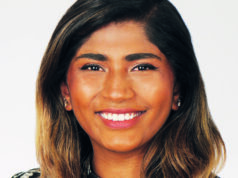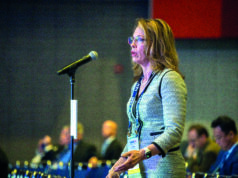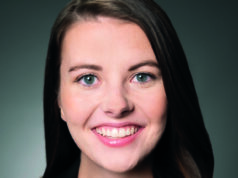
I’m sure research residents everywhere have heard their fair share of unsolicited advice on this topic. But among all the voices advising me on “how to be productive” or “how to make the most impact on the vascular world,” I was lucky enough to have one mentor who asked me, “Who do I want to be at the end of this year?”
That concept, which I felt myself coming back to over and over again throughout my year out, inspired me to come up with a list of ways a research year can really help you become the person you have strived to be but maybe just didn’t quite have the time to develop. This is by no means a complete list.
Spend time with family, friends, and significant others
This seems like a given, but don’t take it for granted. The generally unfiltered access to your family, friends, and significant others is something you may never get to experience again in your medical career. For me, it meant spending every birthday and holiday with my parents and sibling, maintaining friendships that were on the verge of being forgotten, and getting to know the most incredible person in my life right now. Take every opportunity you can to prioritize your time with people (and pets!) you won’t see regularly when you return to the hospital.
Find something that is just yours
I know, it sounds cheesy, but when we make our lives about other people, we forget what makes us who we are. For one of my friends, she felt most herself when she started writing and performing music. For another friend, it was joining a tennis club and playing tournaments on the weekend. For me, it was getting back into sewing and redesigning clothing. I could spend hours not speaking to anyone and consumed just in sewing a new outfit together or fixing ones that needed altering. Now, when I find myself in a rut or just in need of some personal time, I pick something from my “alterations rack” and lose myself in it. It’s important to have something that grounds and reminds you of yourself when you feel lost or burnt out.
Slow down and process
You now have so much more time to process how you choose to interact with the world and the people in it. I found myself taking extra time to think through decisions, what I wanted out of my relationships with others, and whether the ways in which I responded to problems aligned with how I wanted to present myself. As someone who didn’t take much time off before they started training, I found this year offered me room to “develop myself,” especially how I deal with tough situations—this made returning to clinicals much smoother as it was easier to align myself with my personal goals and values.
Make that major event/travel
Whether it’s a wedding, family planning, or visiting your family in another country, take advantage of the time (and significantly less stressful responsibilities) to follow through with it. For me, it was planning a trip to see my grandparents in India, as I had often been stressed by the uncertainty of when I would see them given their late stage in life. It seems like the straightforward move, but I would absolutely recommend pulling the trigger if you have the means to follow through.
Learn something about the world outside of medicine
Though this may not be high on everyone’s list, it certainly increases your appreciation of life outside of the hospital. For me, I enjoyed attending a few birdwatching events that focused on the wildlife in Charleston. Through some of these Saturday kayaking events, I was able to learn about the dragon boat racing culture that was a huge part of many local lives. I also made it a point to take cooking and local wine classes around my community. It gave me an appreciation of what drives others every day.
Again, this is by no means a complete list. But I welcome others to continue to share these aspects of their personal development as I believe prioritizing personal growth (though a sadly underrated practice) ultimately shapes us to contribute to this field in the best ways we can.
Saranya Sundaram, MD, is a vascular surgery resident at Medical University of South Carolina in Charleston and Vascular Specialist‘s resident/fellow editor.











